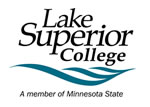
Policy 6.4 - Animals on Campus
Part 1: Purpose
The purpose of this policy is to establish regulations for authorized animals on campus that provide a safe environment for students, employees, visitors, and community members. Lake Superior College (LSC) is committed to providing equal access to programs, services, and physical facilities. It is acknowledged that individuals may require the use of service animals or emotional support animals (ESAs) while at the College. LSC reserves the right to amend these guidelines, with or without prior notice.
Part 2: Policy
Except for those specifically exempted by this document, animals are not allowed in college buildings or college vehicles. The presence of non-exempted dogs, cats, and other animals including comfort animals or therapy animals, shall be prohibited in college buildings. This policy and related procedures apply to all LSC buildings for students, employees, and the general public. At all times, animals on LSC grounds outside of buildings must be properly leashed, under control of, and accompanied by a person.
Part 3: Definitions
Subpart A: Service Animal
A service animal is defined as per the Federal Register, 5/15/24, 28 CFR 35.136 - Service Animals. Any animal individually trained to do work or perform tasks for the benefit of an individual with a disability, including a physical, sensory, psychiatric, intellectual or other mental disability, that meets the definition of “service animal” under ADA regulations at 28 CFR 35.104.
Subpart B: Emotional Support Animal (ESA)
Emotional Support Animals do not perform work or tasks that qualify them as service animals under the ADA and are not protected as such. An ESA is an animal that alleviates or mitigates some symptoms of an individual to provide therapeutic benefit to those dealing with depression, anxiety, phobias, or other conditions in which contact with an animal may improve physical, social, emotional, or cognitive functioning. To qualify as an ESA, the animal must be prescribed by a physician or other medical professional.
Subpart C: Pet
A pet is an animal kept for ordinary use and companionship. A pet is not considered a service animal or ESA and is not allowed in any college buildings or college vehicles.
Subpart D: Owner/Handler
A person that a service animal or ESA assists, or a personal care attendant who handles the animal for another person.
Part 4: Exempted Animals Allowed on Campus
Subpart A: Service Animals for Students and General Public
Service animals that have met the documentation and information requirements for ADA purposes are allowed in college building classrooms and public areas. Individuals with service animals should be aware of areas that are prohibited due to safety or health reasons.
Subpart B: Service Animals and ESAs for Employees
Employees may have the right to bring service animals and ESAs to work if they request reasonable accommodation from their employer per Procedure 6.4.2 Animals on Campus – Employees.
Subpart C: Animals as Part of College Events
The college reserves the right to allow non-exempted animals on campus for sponsored college events with the President's or designees’ approval.
Subpart D: Animals for Educational Purposes
Animals and animal cadavers utilized for teaching and learning, or special events and instructional demonstrations, are allowed on campus with pre-approval from the instructor’s Dean.
Subpart E: On-duty Police Dogs
On-duty police dogs are allowed on campus. Off-duty police dogs are prohibited on campus unless approved under Part 4, Subpart C or D above.
Part 5: Expectations of Policy
A service animal must be under the control of its handler. Under the ADA, service animals must be harnessed, leashed, or tethered, unless the individual’s disability prevents using these devices or these devices interfere with the service animal’s safe, effective performance of tasks. In that case, the individual must maintain control of the animal through voice, signal, or other effective controls.
Only limited inquiries of a student or the general public are allowed when it is not obvious what service an animal provides. An employee may ask two questions: (1) is the service animal required because of a disability, and (2) what work or task has the animal been trained to perform. An employee cannot ask about the person's disability, require medical documentation, require a special identification card or training documentation for the service animal, or ask that the service animal demonstrate its ability to perform the work or task.
Individuals who misrepresent a service animal can face punitive sanctions under LSC’s policies and Minnesota Statute 609.833. If an employee is out of compliance with this policy, disciplinary action may be taken in compliance with the applicable collective bargaining agreement or plan. If a student is out of compliance with this policy, they will also be out of compliance with the student code of conduct.
Part 6: Discrimination or Harassment
An individual requiring a service animal on campus, who believes they are the victim of discrimination or harassment due to their disability or the presence of their service animal, should file a complaint per LSC Policy 1B.4.3 and follow the link to the complaint form provided in the related documents below.
Related Documents
- 28 CFR 35.104 – ADA Auxiliary Aids and Services
- 28 CFR 35.136 - Service Animals
- Minnesota Department of Human Rights
- LSC Procedure 1B.4.3 Americans with Disabilities Act (“ADA”) Title II
- Report of Discrimination or Harassment
History
Date created: June 2024
Date implemented: Sept. 19, 2024
President's Signature Date: September 19, 2024


